Reports of Putin’s death were greatly exaggerated. But that doesn’t stop this rumourmonger.
Tucker Carlson interviewed a doppelganger, claims Valery Solovei, who has attracted a huge following by speculating that the Kremlin leader’s real body is in a freezer
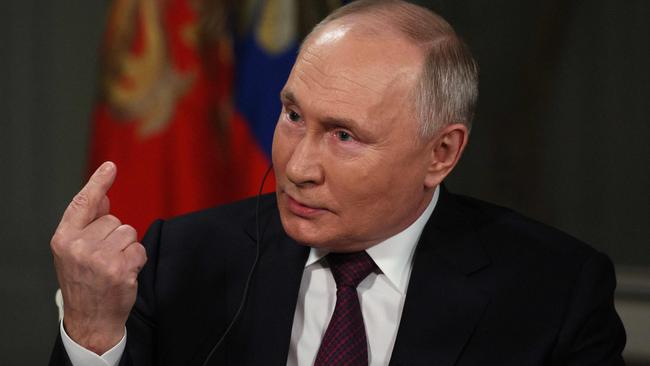
Over the past few months, a Russian political scientist named Valery Solovei has stoked a global frenzy with a sensational claim: that Vladimir Putin died last year and today is represented in public by a body double. The Kremlin’s elite, Solovei tells his half-million online followers, controls the double and has stuffed Putin’s body in a freezer.
Then on Thursday, journalist Tucker Carlson aired a two-hour interview with Putin. Solovei shrugged it off as a sham. Carlson, he said, interviewed Putin’s doppelganger, who will now be passed off as real to millions of viewers in the West. “Putin is dead, irreversibly dead, he will not rise again, he will stay in the freezer,” Solovei said in a broadcast earlier this week.
Carlson declined to comment. The Kremlin, which often denies Solovei’s reports, didn’t respond to emailed questions.
Solovei’s message is part of a broader online rumour mill about Putin’s health that has gone into overdrive as Russia’s relations with the West soured. Google searches such as “Putin Parkinson’s” surged to what the company called peak popularity in 2020, while “Putin cancer” hit a peak in 2022. A peak in “Putin body double” followed last year, and searches for the term remained strong during the fall, when Solovei declared that Putin was dead.
Common videos on TikTok and X, formerly known as Twitter, have examined Putin’s habit of fidgeting with his foot during meetings with top officials, while others trace with Zapruder-like attention public appearances by men said to be the Russian leader whose facial features or mannerisms seem off.
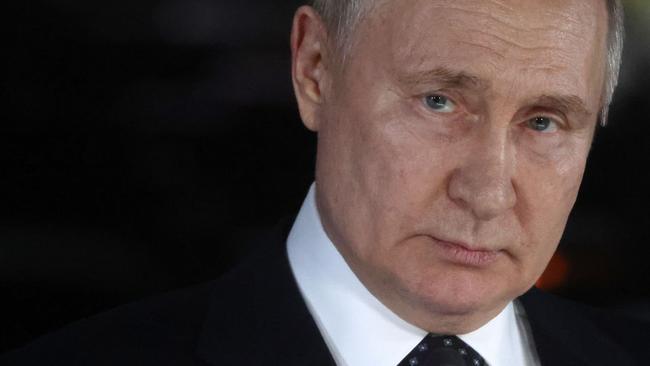
Solovei’s purported revelations about Putin’s failing health have fed Western tabloids and flummoxed high officials. The rumours became so widespread that CIA Director William Burns felt moved to dispel them in 2022, in a rare public assertion on a foreign leader’s health. Putin, he told an Aspen security conference, “is entirely too healthy.” Some see Solovei as a simple crackpot, but others spy a deeper meaning to his purported scoops. Instead of being brushed off as a gadfly or dissident, he is tolerated as a useful tool for the Kremlin, goes one theory. Speculation about Putin’s imminent demise can take the pressure off anyone in Russia or the West contemplating how to oppose him or his invasion of Ukraine, said Thomas Graham, a distinguished fellow at the Council on Foreign Relations. “What’s the point of worrying if he’s going to die anyway?” Graham said.
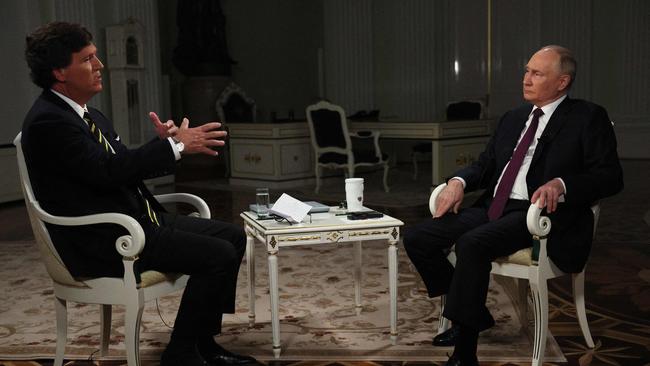
Another theory: After clamping down on independent media, the Kremlin has for years been discrediting the remains of it, by sowing a melange of misinformation that makes any piece of news seem questionable or a matter of opinion.
“The point is to make everything unbelievable,” said Eric Green, who until last year served as Biden’s top Russia adviser on the National Security Council. Solovei might one day be discredited when he is forced to admit Putin is alive, but after gathering so much influence he will further dent the image of the media in general “so that everybody loses, ” he said.
That spells opportunity for Solovei, 63, a former professor of information warfare at Russia’s elite diplomatic academy, the Moscow State Institute of International Relations, who strongly denies the Kremlin supports him.
To hear Solovei tell it, he turned to YouTube to make ends meet after he was fired from his job at the academy in 2019. His YouTube subscriptions swelled to more than a half a million last year, on the back of claims about Putin’s death.
He also said that Putin’s upstart protégé, Wagner Group founder Yevgeny Prigozhin, faked his own death by deploying his doppelganger aboard a private jet that was destroyed by a bomb. The real Prigozhin is now in hiding, Solovei said, plotting his revenge against a Kremlin elite that is torn by a power struggle of its own: Now that Putin is dead, who will lead Putin’s double?
The unfolding drama, and growing friction between the Kremlin elite as it manoeuvres Putin’s doppelganger, is fodder for Solovei’s ongoing episodes on YouTube. “He is now in the freezer in his residence,” he said in a recent televised interview from Moscow.
In an interview with The Wall Street Journal, Solovei insisted that his sources are “very influential people” who have reported to him over the years that Putin has suffered from a range of maladies, including Parkinson’s disease, cancer, and schizophrenic mood disorder. He said that most of his audience is from Russia and the former Soviet states of Belarus and Ukraine.
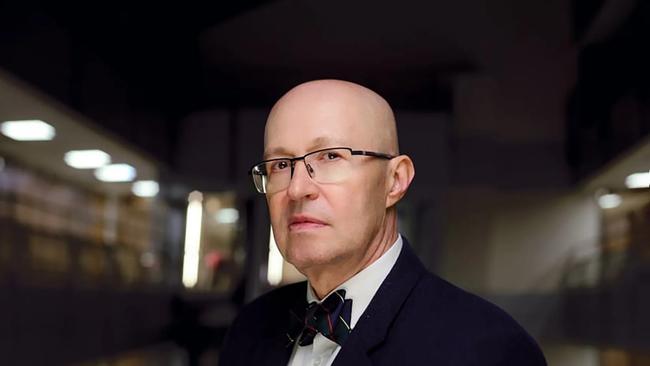
He said members of the government in Kyiv rely on his insights. Far-fetched? Consider that Ukraine’s military intelligence chief, Kyrylo Budanov, said last year that Putin is ill and has been represented by at least three doubles in public, and that Prigozhin is alive and planning a comeback. His spokesman said on Ukrainian television that the three doppelgangers undergo constant training and even surgeries to maintain a Putin-like appearance. Ukrainian officials didn’t respond to a recent request for comment.
Meanwhile, Solovei offers certitude to his followers with uncanny details about the Kremlin’s inner workings. His most lurid accounts often come from an internet Telegram channel, SVR General, a name suggesting it is run by an officer of Russia’s overseas spy agency, the SVR. Solovei says he knows the owners of the channel, and that they are “very close to power.” The channel reported in October that Putin, who it says has long suffered from ill health, went into cardiac arrest at his dacha at 8pm and that a team of doctors rushed to the scene and tried to resuscitate for 42 minutes later and then pronounced him dead.
His passing has been hushed up by Putin’s longtime protégé, Nikolai Patrushev, head of Russia’s security council, the channel said. After depositing Putin’s corpse in a freezer, Patrushev kept the doctors locked in a room at the dacha but let them return to their homes a day later after they signed nondisclosure agreements, the channel reported.
Putin’s purported death has spawned hand-wringing in the Kremlin elite about what to do next, the channel reported in its written dispatches. While the doppelganger has in the past helped the elite rule while the ailing president was alive and incapacitated, now they worry about the legality of using him dead.
“If when Putin was alive, it was possible to use a double without any problems, in extreme cases it was possible to present the real one,” said one dispatch. But now “any attempt to pass off the double as the president is a COUP D’ETAT!” Commentators like Solovei have an out-size influence in the West because of a paucity of information about what is going on in Russia, now that embassies have little staff and news organisations have shut down bureaus, said Graham, who served as top Russia adviser to the White House under President George W. Bush and who last year published a book called “Getting Russia Right.”
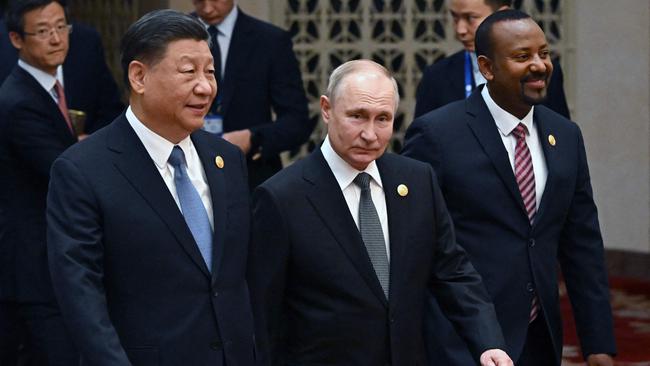
But rumours spawned by Solovei and the Telegram channel also serve a purpose inside Russia. If there ever is a real coup d’état inside Russia, there will be some doubts about its authenticity, Graham said.
Solovey insists his reports are the truth, but concedes his career is a natural outgrowth of his early interest in propaganda and the occasional dark arts of media manipulation. In a 2014 speech to MGIMO students, still posted on YouTube, he explains some finer points of a successful influence campaign. Techniques include fake information leaks and news reports that reveal secrets, preferably from a confidential source, that purportedly offer a peek at unseen forces that run politics.
He also began predicting other events, some of which the West and Putin critics wanted to hear.
He forecast social upheaval in Russia, and in 2017 he said Putin would stand down in two to three years. In 2018, he said a major crisis would remove him in 2019. In 2019 said that Putin would leave in 2020. In 2020, he said Putin had Parkinson’s disease, and would be out in 2021.
Solovei’s forecasts assist a larger Kremlin strategy of getting Russians so hamstrung by conspiracies that they become politically inactive, said Graham, of the Council on Foreign Relations.
Graham, who still travels to Russia to keep in touch with officials there, said that Solovei is considered “an inside joke” in Moscow. But in 2016 he forecast a Kremlin reshuffle that elevated Anton Vaino to chief of staff of the Kremlin, an event that suggested to Western experts that he understood some of the government’s inner workings.
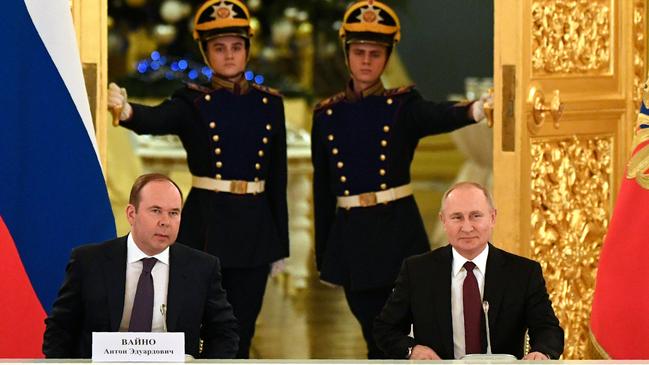
Graham held several meetings with him during his trips to Moscow, and shared reports with colleagues in the U.S. In his last meeting with him in 2019, Graham said, Solovei had dropped his earlier predictions of domestic revolt, but now said that that Putin was terminally ill and hurrying forward with a plan before his death to incite “artificial pogroms” against ethnic Russians in Baltic countries that would justify a Russia invasion that would break the NATO alliance.
“The plan is Solovei’s fabrication likely based on elements of genuine military contingency planning, informed speculation, and febrile imagination,” Graham wrote in a report for colleagues in the U.S. “The reader can decide what is what. The chances of this scenario unfolding are zero, but I relay it on the off chance that if it does miraculously occur you will not be able to say you were not forewarned.” In Solovei’s telling of it, he was forced from his job at MGIMO in 2019 for his political views. In 2022 Russia’s security services conducted a well-publicised raid on his home and he was declared a foreign agent. Nonetheless he has been allowed to continue to raise money through a crypto wallet that he advertises with each of his YouTube episodes.
These days Solovei analyses public appearances of Russia’s putative president and points out nuances that confirm he is a double. The Kremlin plans to run the double in presidential elections later this year, he said, and then instruct him to resign. Over the holiday, the double underwent plastic surgery, and viewers might see faint scars under his eyes if they examine photos through a magnifying glass, he said.
Even before Carlson’s interview with Putin aired, Solovei and the General SVR channel reported earlier this week that the meeting with Putin’s double was a failure, and that the encounter had to be recorded twice. In a brief video announcement Saturday, Solovei said he would issue a more exhaustive analysis on Monday.
The Wall Street Journal



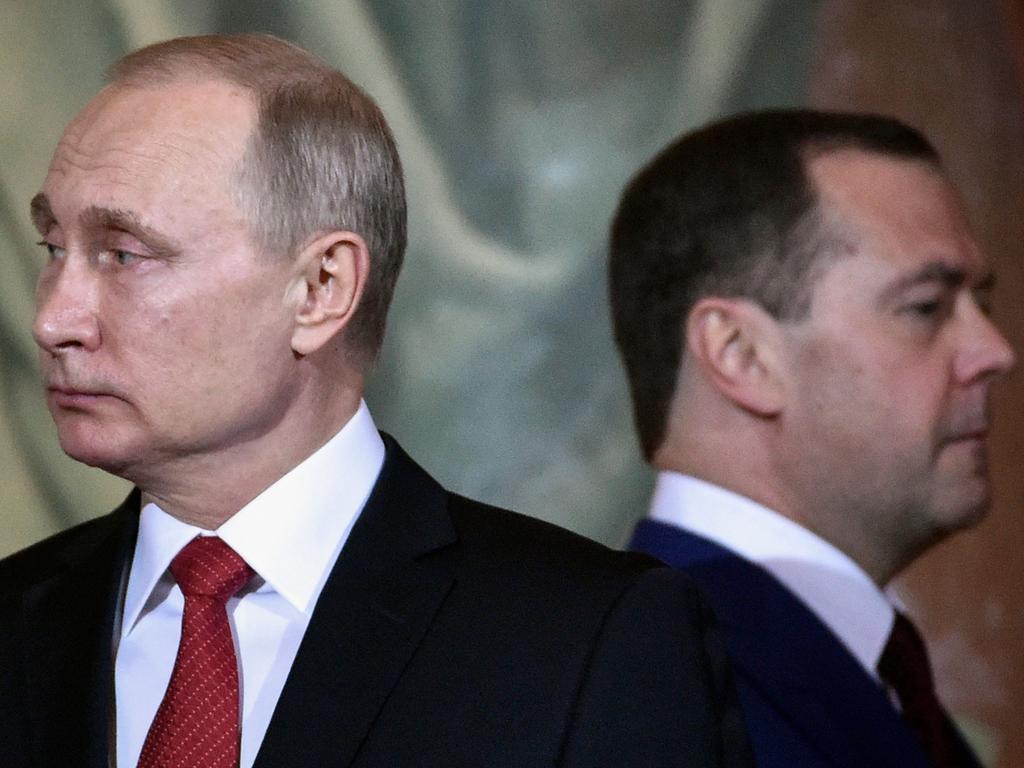

To join the conversation, please log in. Don't have an account? Register
Join the conversation, you are commenting as Logout